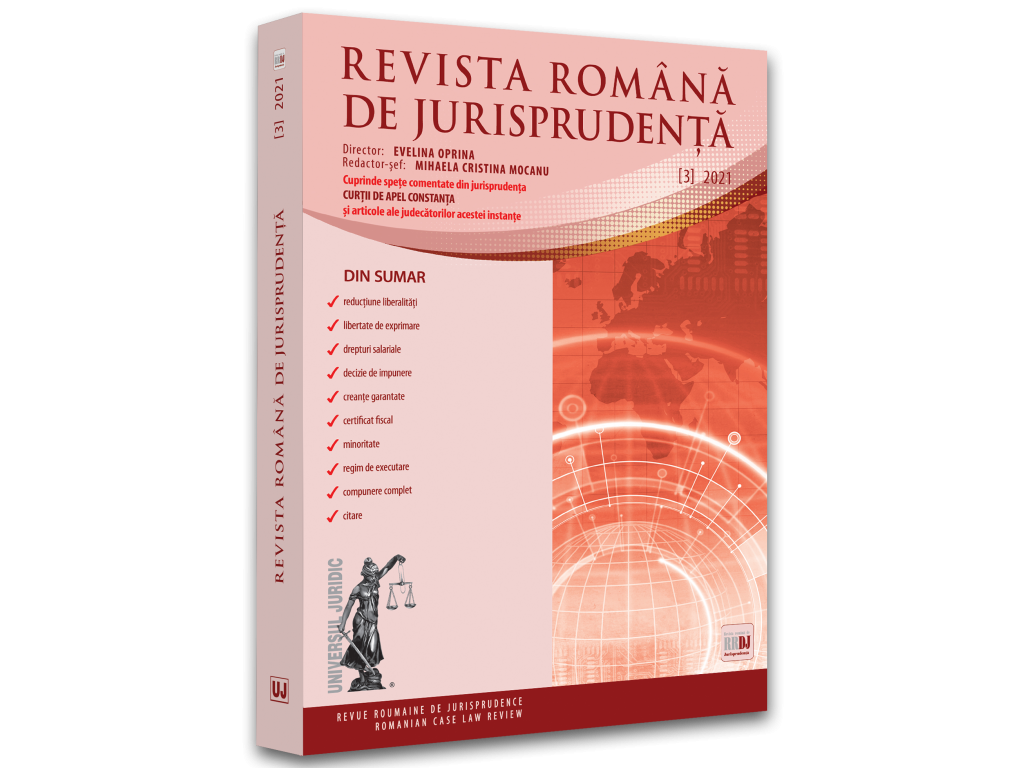12. Inadmisibilitatea recursului în litigiile care privesc coproprietatea forţată şi perpetuă
12. Inadmissibility of the second appeal in disputes concerning compulsory and perpetual co-ownership
Author(s): Alina Gabriela JurubiţăSubject(s): Law, Constitution, Jurisprudence, Civil Law
Published by: Universul Juridic
Keywords: inadmissibility of the second appeal; concerning compulsory and perpetual co-ownership; Civil Procedure Code;
Summary/Abstract: In the notion of „building management” provided for in Art. 94 (1) letter c) sentence I also includes the category of disputes relating to forced and perpetual co ownership, given that in this particular case the issues in dispute may arise both from the exercise of the attributes of the exclusive right of ownership and those relating to common premises (such as the roof in this case). In this sense, the doctrine has also expressed the opinion that disputes concerning forced and perpetual co ownership in the case of condominiums managed through the owners' association, in which the owners claim against the association for the recovery of damages caused, fall within the category of those covered by Art. 94(1) letter c) of the Code of Civil Procedure. In addition, Law no. 196/2018 on the establishment, organization and functioning of owners' associations and condominium management provides: Art. 63 – (1) The management, operation, maintenance, repair, rehabilitation and/or modernization, as the case may be, of the common property related to the condominium shall be the responsibility of the owners' association, and the expenses related to these activities shall be common expenses. Art. 64 (1) Condominium management may be carried out by individuals, authorized individuals or specialized legal persons authorized by law. (2) The management activity includes technical management and maintenance of the common property, accounting and cashier activities. In this context, it is clear that the concept of building management is linked to the activity of the owners' association, which may have an active legal capacity in the substantive or passive legal relationship, if the tasks, obligations and responsibilities of the association with regard to the management of the condominium are discussed. The latter is also the case in the pending case, so that it is concluded that the hypothesis covered by Article 94 letter c), para. 1 of the Civil Procedure Code.
Journal: Revista Română de Jurisprudenţă
- Issue Year: 2021
- Issue No: 03
- Page Range: 127-133
- Page Count: 7
- Language: Romanian
- Content File-PDF

